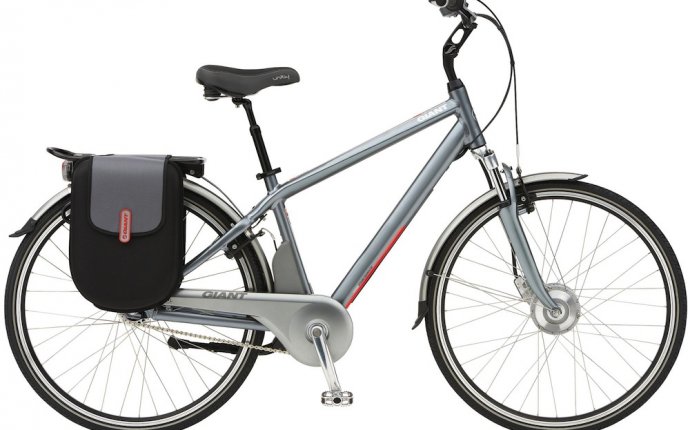
Hybrid electric Bicycles
 Light electric vehicles are a viable way of reducing urban congestion and local pollutant emissions. Electric bicycles combine electrical and human power, hence they represent an appealing class of hybrid vehicles in such a context. Differently from other hybrid vehicles, the energy management of hybrid bicycles is little investigated in the literature. In this work, we study the problem for a series electric-human-powered hybrid architecture, in which there is no direct mechanical link between the pedals and the wheel. We tackle the problem using optimal control principles, aiming to minimize the perceived physical exertion while guaranteeing a predetermined electric range. We build on an approximated solution of the problem and propose a control system that copes with incomplete trip information. In a series of simulation and experimental tests, the proposed strategy approaches the acausal optimum and significantly improves performance if compared to a baseline causal policy; the discussion also encompasses the sensitivity of the results to the requested information.
Light electric vehicles are a viable way of reducing urban congestion and local pollutant emissions. Electric bicycles combine electrical and human power, hence they represent an appealing class of hybrid vehicles in such a context. Differently from other hybrid vehicles, the energy management of hybrid bicycles is little investigated in the literature. In this work, we study the problem for a series electric-human-powered hybrid architecture, in which there is no direct mechanical link between the pedals and the wheel. We tackle the problem using optimal control principles, aiming to minimize the perceived physical exertion while guaranteeing a predetermined electric range. We build on an approximated solution of the problem and propose a control system that copes with incomplete trip information. In a series of simulation and experimental tests, the proposed strategy approaches the acausal optimum and significantly improves performance if compared to a baseline causal policy; the discussion also encompasses the sensitivity of the results to the requested information.
Keywords
- Optimal control;
- Human-in-the-loop;
- Energy management systems;
- Hybrid electric bicycles;
- Real-time control
© 2017 Elsevier Ltd. All rights reserved.
Jacopo Guanetti was born in Varese, Italy, in 1987. He received the B.Sc. and M.Sc. degrees in Automation Engineering and the Ph.D. degree in Systems and Control Engineering from the Politecnico di Milano in 2009, 2012, and 2015, respectively.
 In 2012 he was a visiting scholar at the Ohio State University (Center for Automotive Research) in Columbus, OH, USA.
In 2012 he was a visiting scholar at the Ohio State University (Center for Automotive Research) in Columbus, OH, USA.
He is currently a Postdoctoral Researcher at the University of California, Berkeley, CA, USA.
His research interests include optimal and predictive control, with applications to the control of vehicle dynamics, connected and automated vehicles and hybrid electric powertrains, as well as the modeling and state estimation of electric energy storage systems.
Simone Formentin was born in Legnano, Italy, in 1984. He received the B.Sc. and M.Sc. degrees in Automation Engineering from Politecnico di Milano, Italy, in 2006 and 2008, respectively. In 2012, he obtained the Ph.D. degree cum laude in Information Technology within a joint program between Politecnico di Milano and Johannes Kepler University of Linz, Austria. After that, he held postdoctoral appointments at Swiss Federal Institute of Technology of Lausanne (EPFL), Switzerland and University of Bergamo, Italy. Since 2014, he has been an assistant professor at Politecnico di Milano. He is a member of the IEEE TC on System Identification and Adaptive Control, the IFAC TC on Modelling, Identification and Signal Processing, the IFAC TC on Robust Control and the Editorial Board of the IEEE CSS. His research interests include identification for control and intelligent transportation systems.

Matteo Corno received the Master of Science degree in computer and electrical engineering from the University of Illinois, and the Ph.D. cum laude degree with a thesis on active stability control of two-wheeled vehicles from the Politecnico di Milano, Milano, Italy, in 2005 and 2009. He is an Associate Professor with the Dipartimento di Elettronica, Informazione e Bioingegneria, Politecnico di Milano, Italy. His current research interests include dynamics and control of vehicles (especially electric-hybrid vehicles), Lithium-ion battery modeling, estimation and control. He held research positions at Thales Alenia Space, Harley Davidson, U. of Minnesota, Johannes Kepler University in Linz, and TU Delft.
Sergio M. Savaresi was born in Manerbio, Italy, on 1968. He received the M.Sc. in Electrical Engineering (Politecnico di Milano, 1992), the Ph.D. in Systems and Control Engineering (Politecnico di Milano, 1996), and the M.Sc. in Applied Mathematics (Catholic University, Brescia, 2000). After the Ph.D. he worked as management consultant at McKinsey&Co, Milan Office. He is Full Professor in Automatic Control at Politecnico di Milano since 2006. He is Deputy Director and Chair of the Systems&Control Section of Department of Electronics and Computer Sciences, Politecnico di Milano. He is Associate Editor of: IEEE Transactions on Control System Technology; European Journal of Control; Control Engineering Practice. He is Member of the Editorial Board of the IEEE CSS. He is author of more than 500 scientific publications. His main interests are in the areas of vehicles control, automotive systems, data analysis and system identification, non-linear control theory, and control applications. He is co-founder and partner of five spin-off companies.









